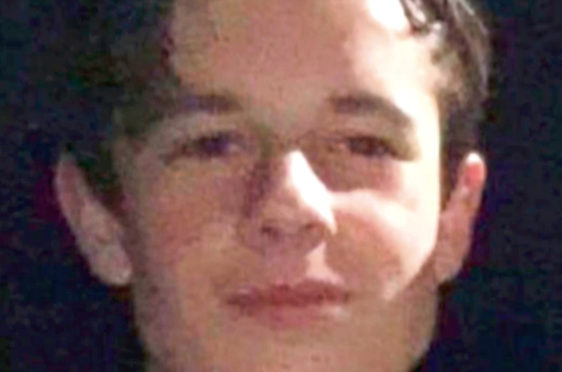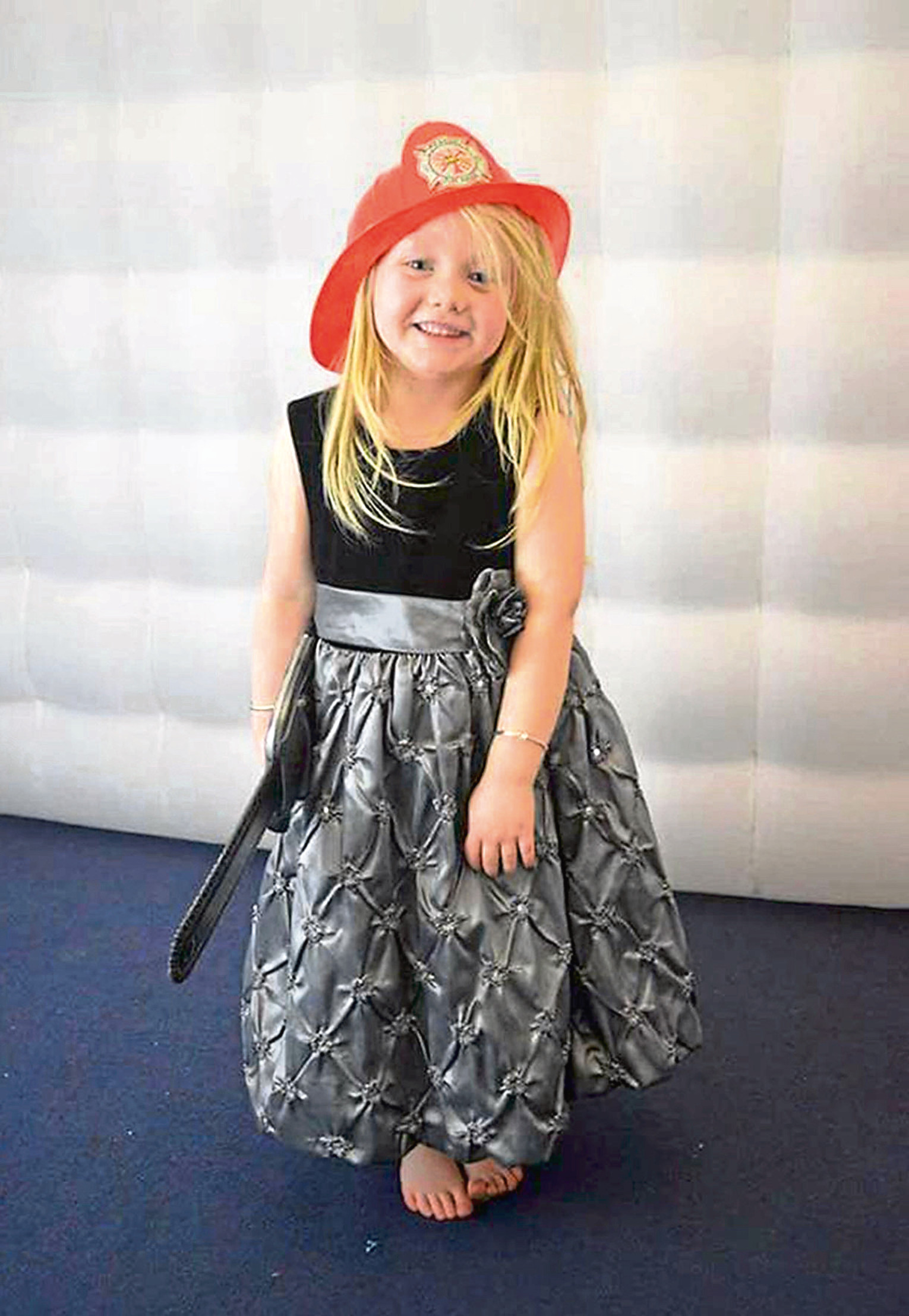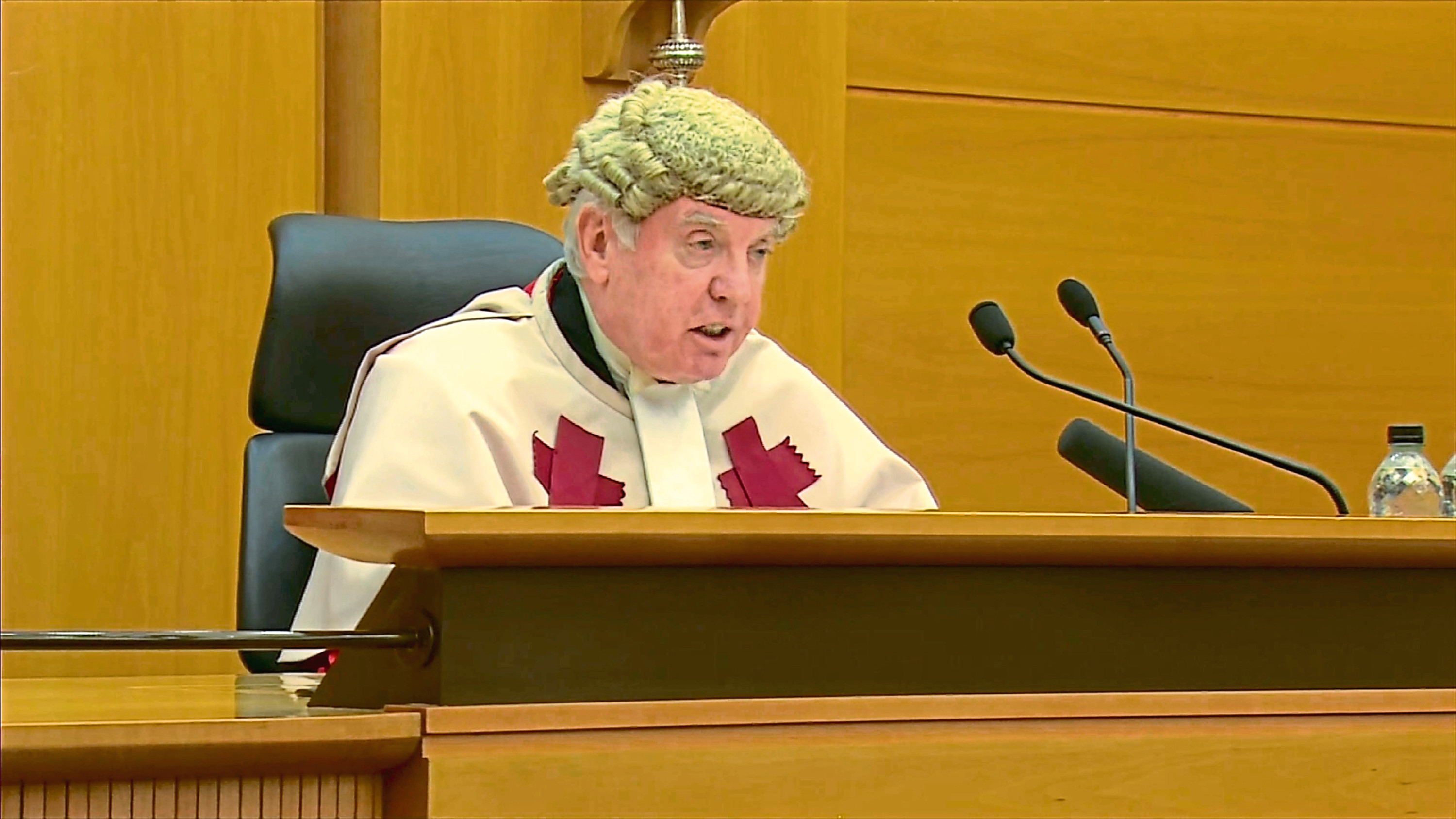
Killer Aaron Campbell will claim he is too young to be sentenced to 27 years after he abducted, raped and murdered six-year-old Alesha MacPhail.
Campbell was 16 when sentenced to life imprisonment in March for the murder on Bute.
He later announced he would appeal the minimum jail term handed down by trial judge Lord Matthews, causing more anguish for his victim’s family.
Campbell, who is locked up in Polmont Young Offenders’ Institution, will not be in court for the appeal on Wednesday but will appear instead via video link for the hearing at the High Court in Edinburgh.
An informed source close to the case said: “It’s an appeal against sentence and an appeal against the punishment part of 27 years.
“The appeal is on the basis that it is too long and this is because of his age.
“It’s understood the argument will be that, given he was a child at the time of the offence, a punishment part of 27 years is excessive.”
They added: “There has been an application to the court that he will not attend and will appear by video link.”
At his trial, Campbell, who turned 17 in May, denied even meeting Alesha but, after being convicted, confessed to a forensic psychologist compiling a pre-sentencing report.
Alesha’s mum Georgina Lochrane has spoken of her disgust at the killer’s bids to reduce his sentence and said she hopes it is increased and not decreased.
Georgina, 24, said of the appeal bid: “We were fully prepared for him to appeal his conviction and sentence before he admitted it, but now he can only appeal the sentence.
“It can end up with him having even more added on to his sentence. I don’t think he will get less.”
The Scottish Courts Service said three judges would preside over the appeal. It is thought their decision could take some weeks.
Alesha, from Airdrie, Lanarkshire, was at her grandparents’ home on the island, where her father lives, when Campbell took her from her bed in the middle of the night in July last year.
Her body was found in the grounds of a former hotel the next morning. A post-mortem examination revealed she had suffered 117 injuries.
Campbell stuck to his not guilty plea throughout his nine-day trial in February, causing further distress to Alesha’s family.
On the stand he told the jury his DNA must have been planted at the scene.
But the prosecution case, built on forensic evidence and CCTV provided by Campbell’s mother, was overwhelming.
The jury at the High Court in Glasgow took three hours to unanimously convict Campbell.
It was only afterwards that Campbell told a court-appointed clinician how he had abducted drowsy Alesha from her bed at dad Robert’s home on Bute before raping and murdering her.
The teenage murderer has told how he had to stop himself from laughing during parts of the disturbing trial and had been “mildly amused” that it took police two days to arrest him. He said he was “quite satisfied with the murder”.
One observer, who was at the trial, said: “If you read what he told the psychologist after he was found guilty, 27 years might not seem too long a sentence.
“I’m sure it is not nearly long enough for Alesha’s family.”
Forensic psychologist Dr Gary MacPherson said Campbell’s behaviour displayed psychopathic tendencies.
MSPs voted in May to increase the age of criminal responsibility from eight to 12. The age at which a child can actually be prosecuted was, and remains, 12.
An appeal in 2011 by Luke Mitchell over his 20-year minimum term for the murder of Jodi Jones was rejected by three judges.
Lord Gill said the sentence should be cut to 15 years to reflect that Mitchell was 14 at the time.
However, Lord Hardie and Lady Cosgrove said that, given the nature and circumstances of the crime, the term should remain at the original 20 years.
The sentencing
Judge Lord Matthews, who presided over Campbell’s trial, said he took into account the teenage killer’s age when deciding his minimum prison term.
Fixing the sentence at 27 years, the judge said it would “not be as long as it would have been had you been an adult”.
The judge also quoted sickening excerpts from Campbell’s interviews with social workers and a forensic psychologist when explaining his reasoning for the sentencing.
Lord Matthews told the High Court in Glasgow: “Each of these reports contains clear admissions by you of your guilt. They paint a clear picture of a cold, callous, calculating, remorseless and dangerous individual.”
Lord Matthews said: “I am conscious that you are a child. In sentencing children it has to be borne in mind that they are not yet fully rounded, mature human beings. The desirability of the child’s reintegration into society must also be taken into account.”
But, he added: “The nature of these appalling offences make it clear to me that reintegration and rehabilitation are remote possibilities.”

Enjoy the convenience of having The Sunday Post delivered as a digital ePaper straight to your smartphone, tablet or computer.
Subscribe for only £5.49 a month and enjoy all the benefits of the printed paper as a digital replica.
Subscribe
